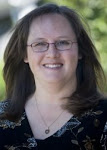This week, I decided to do something different. Monday, March 1, Lena Nelson Dooley will begin teaching an online course through WIES Workshops entitled "Taking Your Settings to the Next Level." I recently interviewed Lena about this course, and thought I'd share it here with you. After the interview, I'll ask you to share with us.
First, let me share a little with you about Lena.
First, let me share a little with you about Lena.

Lena Nelson Dooley is a multi-published, award-winning author with more than 650,000 books in print. Although her brand is Characters Who Grip Your Heart, her books are a rich tapestry of setting, too. She's been a full-time author, speaker since her second book released in 2002. She's taught online classes for ACFW as well as doing workshops for writing groups and at both regional and national conferences. Lena's next book, Love Finds You in Golden New Mexico, will release May 1.
A native of Arkansas, she moved to Texas during college. She married there and still lives in Texas with the love her her life. They enjoy spending time with family and friends, traveling, and movies. Active in church, Lena volunteers in the church bookstore and serves on the Altar Ministry team.
TR: Lena, why are settings so important?
LND: A sense of setting lets the reader settle into the story without wondering where the characters are. They can comfortably enjoy watching the story take shape in their mind.
TR: Why are settings difficult to master?
LND: Many people don't understand the subtlety of adding setting. During the course, we'll talk about the nuances.
TR: How does an author know when to make the setting a real place, or when to create a fictional one?
LND: This depends on a number of things, and we'll discuss them during the class.
TR: I've read books that are so generic in setting, the action could take place anywhere. But the books I remember most create a sense of place for me - the author makes the reader want to go to the setting, even if it is fictional. Will your course help the writer accomplish that?
LND: Most definitely!
TR: What was your favorite setting to write in which book? Why was it your favorite?
LND: That's hard to answer. I loved each setting for different reasons. I will use many of the settings from my books as examples during the course.
TR: What was your most difficult setting? Why?
LND: Probably Pirate's Prize, set in 1804.
TR: How will the writer benefit from taking your course?
LND: They will learn how to establish a setting foundation and use it through the whole course.
Thanks, Lena, for taking the time to share with us. Registration is currently in progress for Lena's course, Taking Settings to the Next Level. Find all the details and registration information here.
Okay, reader, now it's your turn to tell us what you think about settings. Choose any or all of the questions below and provide your answers in the comments.
First, as a writer: What causes you the most trouble when creating settings for your books? Do you have any tips you'd like to share with us about creating those settings? Have you had a favorite setting for your own stories? What was it, and why was it your favorite? What about least favorite, and why?
Second, as a reader: Do you like rich settings? What's one setting you remember most in a book? Why? Does a vivid setting cause you to become more involved in the story? Or perhaps like/dislike the characters more strongly, depending on the setting?
I look forward to your thoughts.













I think settings are very important. They help the reader "live" in the story. Setting helps give the sense of time and seasons.
ReplyDeleteI'm learning to hint at setting through the character's dialogue and clothing. Much can be told by a person's choice of words or what they are wearing. ("reckon", a top hat, etc.)
I am interested to see what others have to say about settings.
I think settings play a very important part in your story. If you do a good job with your descriptions, your book can take the reader away for a little while to another place and another time.
ReplyDelete